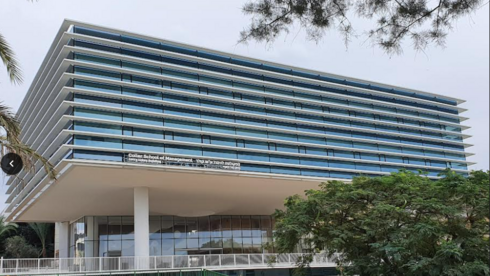
TAU produces more unicorn founders than any other non-U.S. university
“I strongly believe we will prevail and eventually, we'll become much better than we actually were,” said Moshe Zviran, Professor and Chief Entrepreneurship and Innovation Officer at Tel Aviv University
Tel Aviv University produces the highest number of unicorns from its alumni and employees among non-U.S. universities, research conducted by Stanford Finance Professor Ilya Strebulaev, alongside Venture Capital Initiative and Stanford Graduate School of Business, has shown. The ranking is an improvement from last year when the institution came in second place.
“New research reveals that 458 non-US universities have produced at least one unicorn founder, and 45% of US-based VC-backed unicorns have at least one founder who studied or worked at a university outside the US,” he posted on X.
TAU has taken the top spot (31) followed by the UK’s Oxford University (30), Israel’s Technion (27), and the UK’s Cambridge University (25). Hebrew University took the fifth spot with 23 companies meaning that Israel secured three of the top five spots on the list.
The study covers 1,100 U.S-based VC-backed companies that became unicorns between 1997-2021. Tel Aviv University is Israel’s largest university with more than 30,000 students. It is attended by those who served in the IDF - another hub of innovation for the country - but also by those who have a keen interest in the Arts, Humanities, Engineering, and Research and Development.
According to the U.S. News and World Report, the university is ranked second nationally after the Weizmann Institute of Science and 175th globally. Prominent alumni include Mobileye President and CEO Amnon Shashua and Payoneer Founder Yuval Tal, among others.
After the events of October 7, Moshe Zviran, Professor and Chief Entrepreneurship and Innovation Officer at TAU confirmed how the institution has bounced back given the shock the country and the university faced from all fronts. “We delayed the start of the academic year, but eventually we got it started and we're trying to act as usual with special treatment for those who need it,” he told CTech. “This includes nurturing the ventures… but you know, the situation is not yet over.”
This year’s academic year started late in Israel and is expected to end at some point in July, one month after its regular schedule. In the meantime, faculty are hosting additional classes or one-on-one tutoring for students out of regular hours for those who need to catch up on missed classes.
“It's too early to look at the impact of the situation on startups at Tel Aviv University or on the entrepreneurship spirit at Tel Aviv University,” he continued. “We're trying to do things as usual, which means students who are already on campus taking courses can also participate in entrepreneurial activities and so on. But the impact is pretty much dramatic because there are no investments in Israeli high-tech at this point.”
Despite the turbulent times, the data are promising given Israel’s embattled year, both domestically with the constant judicial reform protests at the start of 2023 and the war with Hamas that engulfed the rest of the country at the end of the year. From October 2023, approximately 15% of Startup Nation has been impacted by the war and thousands of entrepreneurs, CEOs, and investors are now on the battlegrounds - with that number rising to 20% among TAU students.
“I strongly believe that we will prevail and eventually, we'll become much better than we actually were,” he concluded. “Still being number one, but with larger numbers.”













